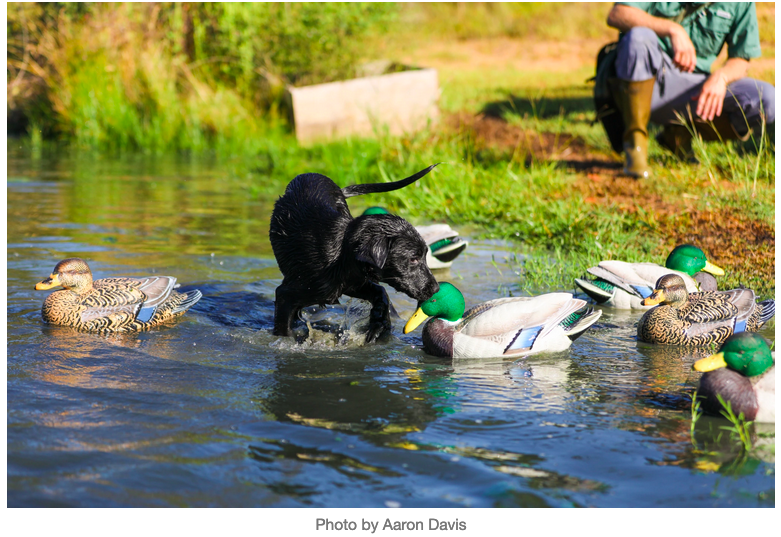Introducing Your Puppy To Water

Now that we have had our first heat index over 100 degrees in Texas, it’s time to talk about water. If you are raising a future duck-hunting companion, this is a very important step in the life of your future duck dog. Decisions here can mean the difference between a dog that practically lives in the water or a dog that you spend its lifetime encouraging it to do what hundreds of years of breeding meant for it to do. If you are going to do this right, be patient and enjoy the process. If you don’t like getting wet or dirty, raising a pup that likes water and mud is going to be that much harder. Grab your boots or take ‘em off and roll up the pants, it’s time to act like puppy.
First step is to choose an appropriate location. Find a calm and safe body of water for the introduction, such as a shallow pond, a calm lake, or a controlled swimming area. Ensure there are no strong currents or dangerous hazards present. The more gradual the entry the better. We want the puppy to touch the bottom for as long as possible before deciding to swim.
Second, familiarize the puppy with the water’s edge. Bring the puppy to the water’s edge and allow the puppy to observe the water from a safe distance. Encourage positive associations by speaking to the puppy in a calm and reassuring manner. Do not force the puppy into the water. Any time you apply force on anything, the reaction is always push back. We want the puppy eagerly straining to get into the water not fighting us from the start even before it knows what it’s fighting against.
 Third, use a trusted companion. THIS MEANS YOU. Get in the water, splash around, and have fun. The temptation of you playing without them will entice most pups fairly quickly to join in on the fun. Keep it positive. Throughout the process, maintain a positive and patient attitude. The goal is to build trust and confidence. Sometimes an adult dog that lives for the water can be a good enticer as well. Just make sure the older dog isn’t going to push the younger pup under accidentally if they get too excited.
Third, use a trusted companion. THIS MEANS YOU. Get in the water, splash around, and have fun. The temptation of you playing without them will entice most pups fairly quickly to join in on the fun. Keep it positive. Throughout the process, maintain a positive and patient attitude. The goal is to build trust and confidence. Sometimes an adult dog that lives for the water can be a good enticer as well. Just make sure the older dog isn’t going to push the younger pup under accidentally if they get too excited.
Fourth, it is important to realize we have not done retrieves into the water at this point with the pup. It is important for the puppy to know what it is getting into when charging off into the water for a bumper. If you just send the pup in without the pup knowing what is going to happen, you risk the pup reacting poorly due to shock. Once your pup knows what is going to happen though, this will become a favorite and exciting game for the rest of the pup’s life.
Remember, each puppy is unique and the pace of progress may vary. It’s essential to be patient, observe the comfort level, and adjust the training accordingly. Don’t hesitate to reach out to your local Wildrose or fellow pack members for help gaining access to good areas to train and work together in this exciting time.



